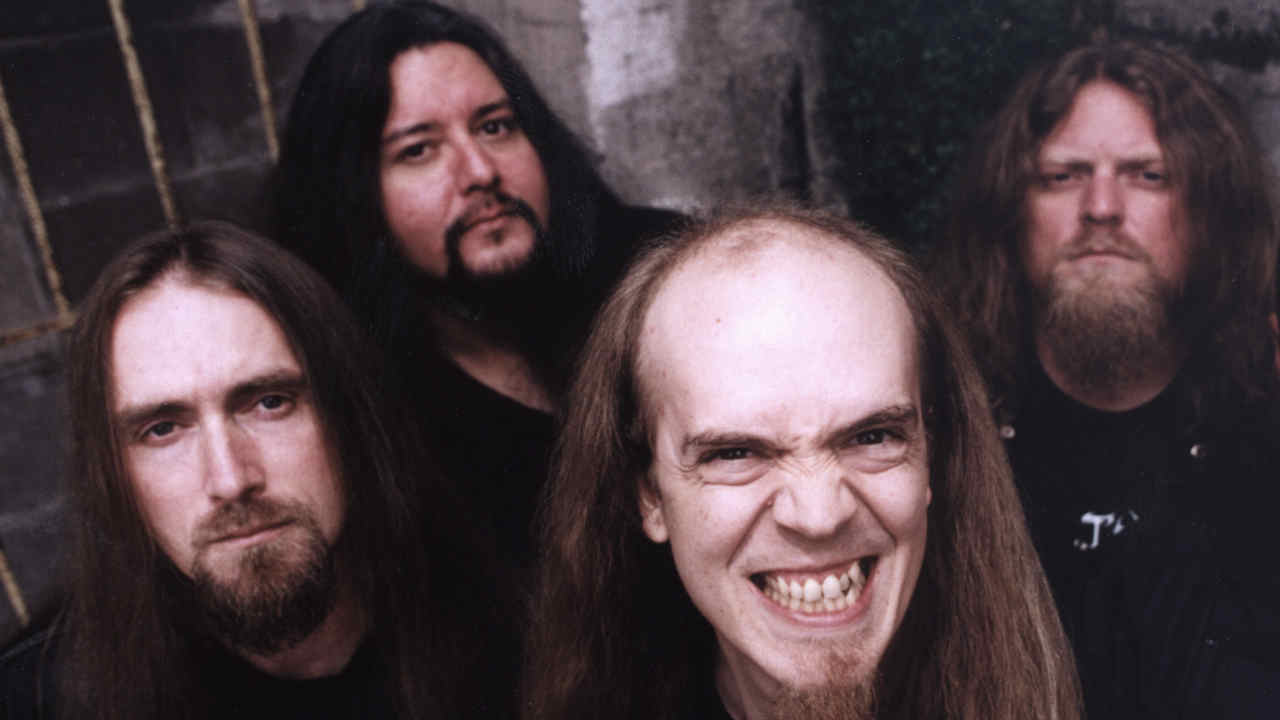Lucifer unleashed! The Satanic history of the Parental Advisory label
In the 1980s, Satanic Panic swept through America – and heavy metal got caught in the crosshairs. We go deep on the story behind the Parental Advisory label
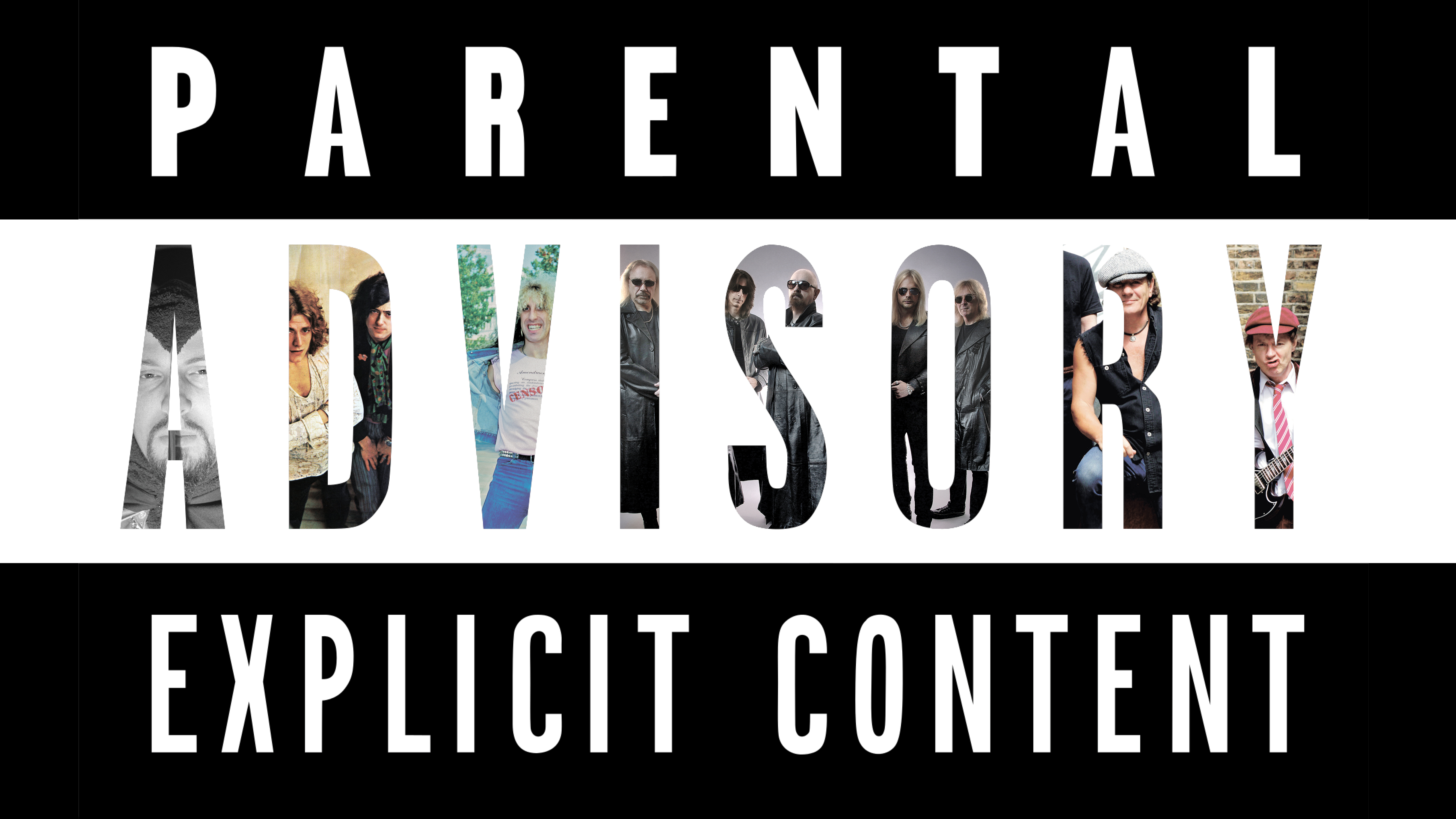
Most metal fans will be familiar with the black and white Parental Advisory label, that has diligently warned us about ‘explicit content’ for the best part of four decades. But the label has an intriguing backstory – it was the result of a tense court battle between Frank Zappa, Twisted Sister’s Dee Snider, and Al Gore's wife Tipper Gore, and its creation was incited by one of the most notorious outbreaks of mass hysteria in American history: Satanic panic.
Satanism began to claw its way into mainstream public consciousness in the 60s. Occult rockers Coven, who were one of the first openly Satanic rock bands, blazed the trail with their debut album Witchcraft Destroys Minds & Reaps Souls. Although the album wasn’t released until 1969, Coven wrote their first song in 1966, the same year that Anton LaVey made headlines by establishing the Church of Satan — the first legitimate organisation dedicated to the practice of Satanism.
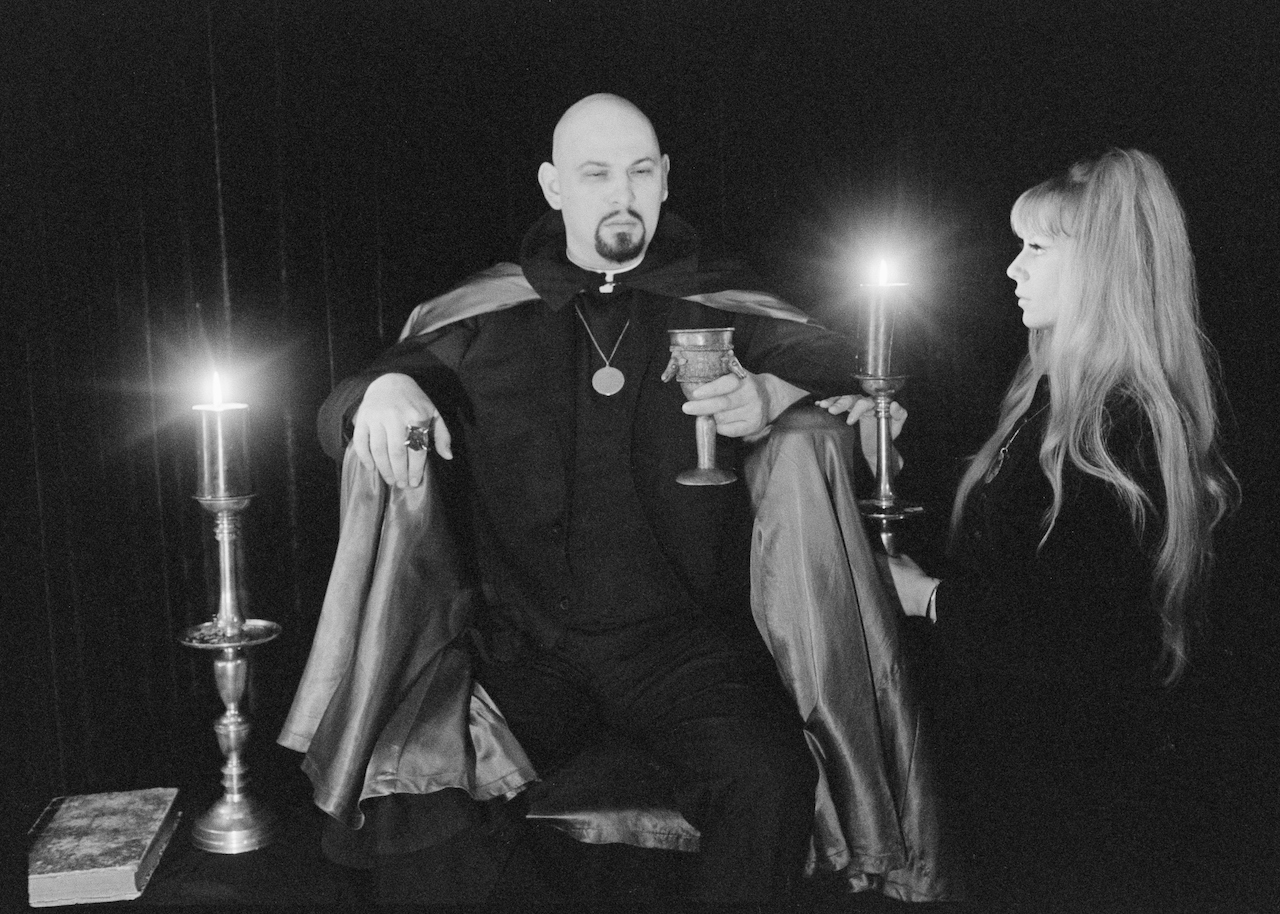
LaVey’s ideas spread like wildfire, and it wasn’t long before two of his followers established their own organisations: the First Occultic Church of Man (1971) and Temple of Set (1975). In the 70s, bands like Black Sabbath, Kiss, Judas Priest, and Led Zeppelin burst onto the charts, sounding darker and heavier than anything that had come before. By the time the 80s arrived, America was in prime position for full-blown Satanic panic, and metal music would find itself directly in the crosshairs.
The panic was primarily fuelled by the publication of a (now discredited) non-fiction book called Michelle Remembers in 1980. It was an account of how psychiatrist and co-author Lawrence Pazder had uncovered hidden childhood memories of Satanic ritual abuse (SRA) in his patient Michelle Smith. And just like that, hysteria was ignited.
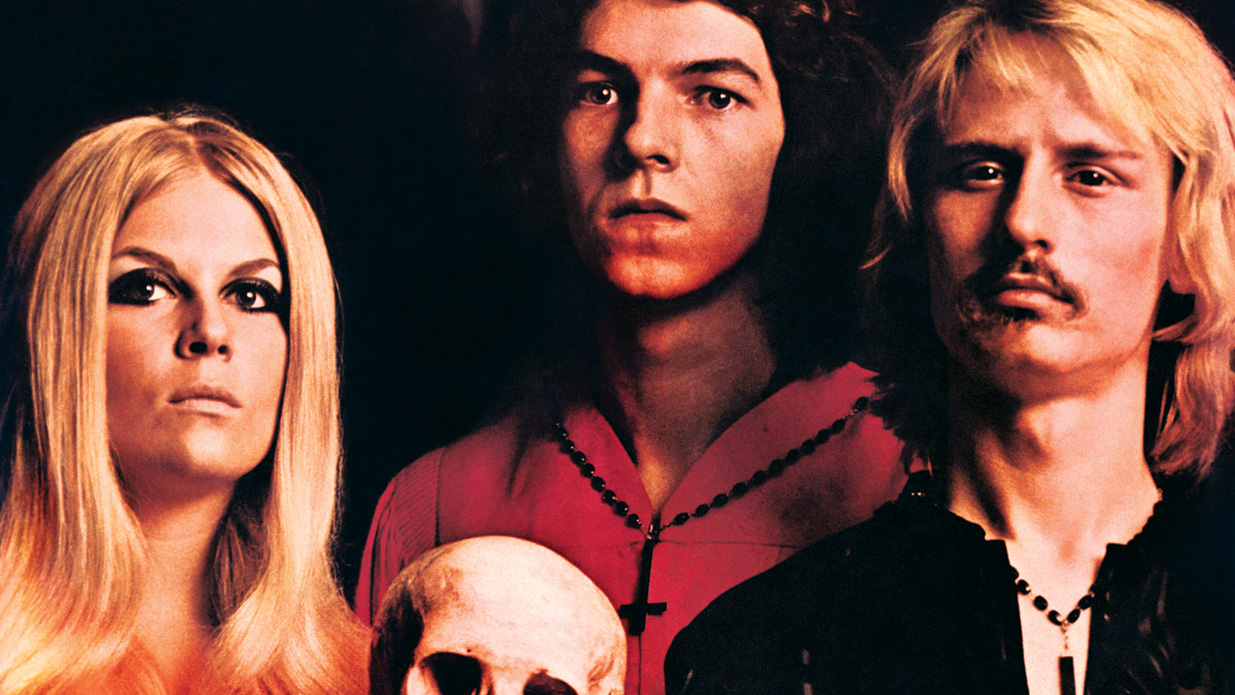
Communities started a witch-hunt in local daycare facilities, hoping to root out underground Satanic groups who might be abusing children in similar rituals. Between 1983 and 1990, over one hundred daycare centres were investigated by police and nearly two hundred staff arrested, despite a distinct lack of physical evidence.
The most infamous example is the 1983 ‘McMartin trial’, where police permitted an unlicensed psychotherapist to take testimonies from over 400 children using coercive techniques. McMartin daycare staff were accused of 321 counts of child abuse in a court case that lasted six years.
Concerned parents and local leaders would soon come to suspect that Satan wasn’t just invading their communities through daycare facilities, but that evil forces were also infiltrating homes in the form of popular entertainment. Metal’s unapologetic exploration of subversive subject matter made it the perfect target for Satanic accusations. And it wasn't alone — popular board game Dungeons & Dragons was drawn into the drama, after two separate incidents of teen suicide were linked to the game by the victims' parents.
Sign up below to get the latest from Metal Hammer, plus exclusive special offers, direct to your inbox!
Worried parents believed bands were hiding Satanic messages in their songs using a technique called ‘backward masking’. In 1983, a televangelist demonstrated how Led Zeppelin’s Stairway To Heaven contained sinister messages like ‘I live with Satan’. When asked about the accusations, lead singer Robert Plant simply replied: "You've got to have a lot of time on your hands to even consider that people would do that.”
Judas Priest also found themselves at the centre of a backward masking scandal when two young men attempted suicide in 1985. One died instantly and the other passed away from injury complications three years later. He told his parents that hidden messages in the Stained Class album caused the suicide pact, and in 1990, after his death, Judas Priest were called to stand trial in a civil lawsuit.
“We had no idea what a subliminal message was,” Rob Halford said. “It was just a combination of some weird guitar sounds, and the way I exhaled between lyrics. I had to sing Better By You, Better Than Me in court, a cappella. I think that was when the judge thought, ‘What am I doing here? No band goes out of its way to kill its fans.’”

By the mid-80s, hysteria was rife, and something needed to be done. Enter the Parents Music Resource Centre (PMRC), a committee dedicated to increasing parental control over music consumption. They promised to protect innocent ears from the lure of drugs, violence, sex, and the occult. The PMRC was founded in 1985 and led by Tipper Gore (the wife of future Vice President Al Gore). Once up and running, they wasted no time.
Their first act was to release the now legendary 'Filthy Fifteen' list: a list of 15 songs deemed inappropriate for impressionable minds. The list included Possessed by Venom, Trashed by Black Sabbath, and Into The Coven by Mercyful Fate. Metal bands weren’t the only ones to feel the heat — pop acts like Prince, Madonna, and Cyndi Lauper also made the list, marked X for ‘profane or sexually explicit’.
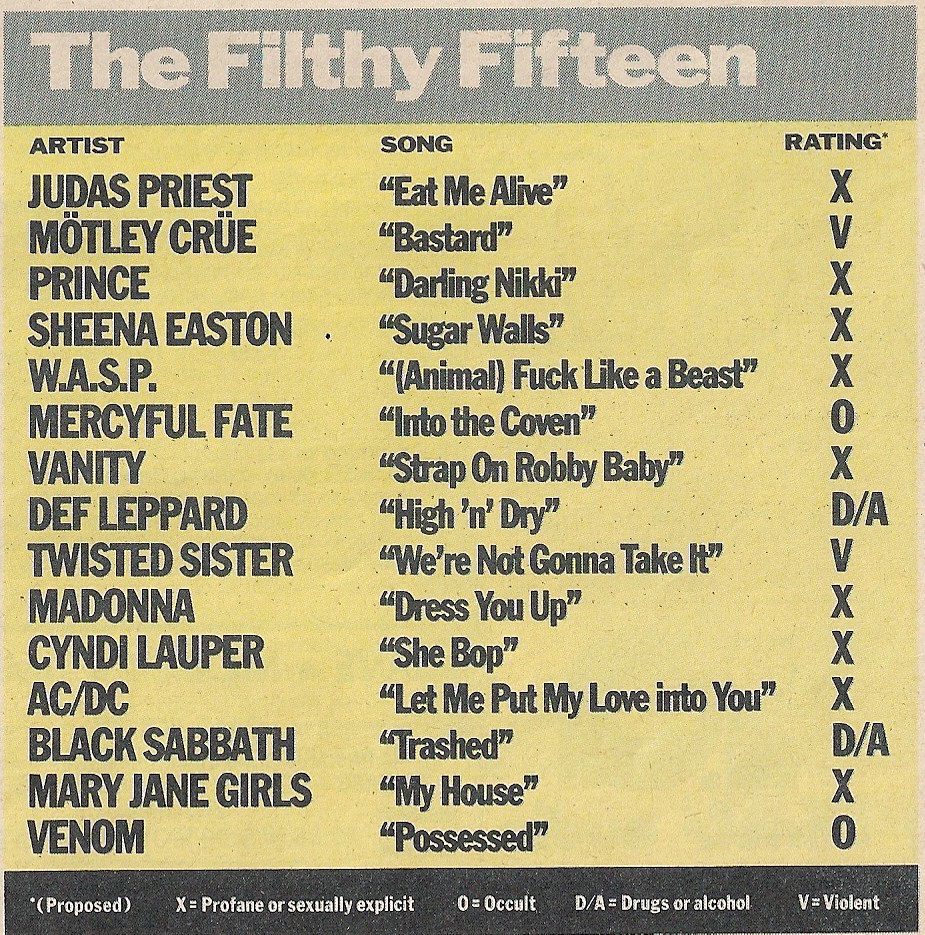
On September 19, 1985, the PMRC took their issue to the U.S. Senate, where they held a hearing to advocate for the Recording Industry Association of America (RIAA) to start using a rating system for explicit music. Their opposing witnesses were none other than Frank Zappa, Dee Snider, and John Denver. The three argued against artistic censorship, with John Denver even likening the labels to Nazi book burnings.
Despite the opposition’s fight to protect artistic freedom, the PMRC won their case, and the Parental Advisory label (also known as the “Tipper Sticker”) was born in November of 1985. The RIAA agreed to use it on selected records at their own discretion. But the battle wasn’t over.
In the immediate aftermath, the Parental Advisory label gave musicians something new to rebel against. Metallica’s 1986 Master Of Puppets album artwork contained a parody label, and bands like Megadeth and Danzig wrote diss tracks about the PMRC directly.
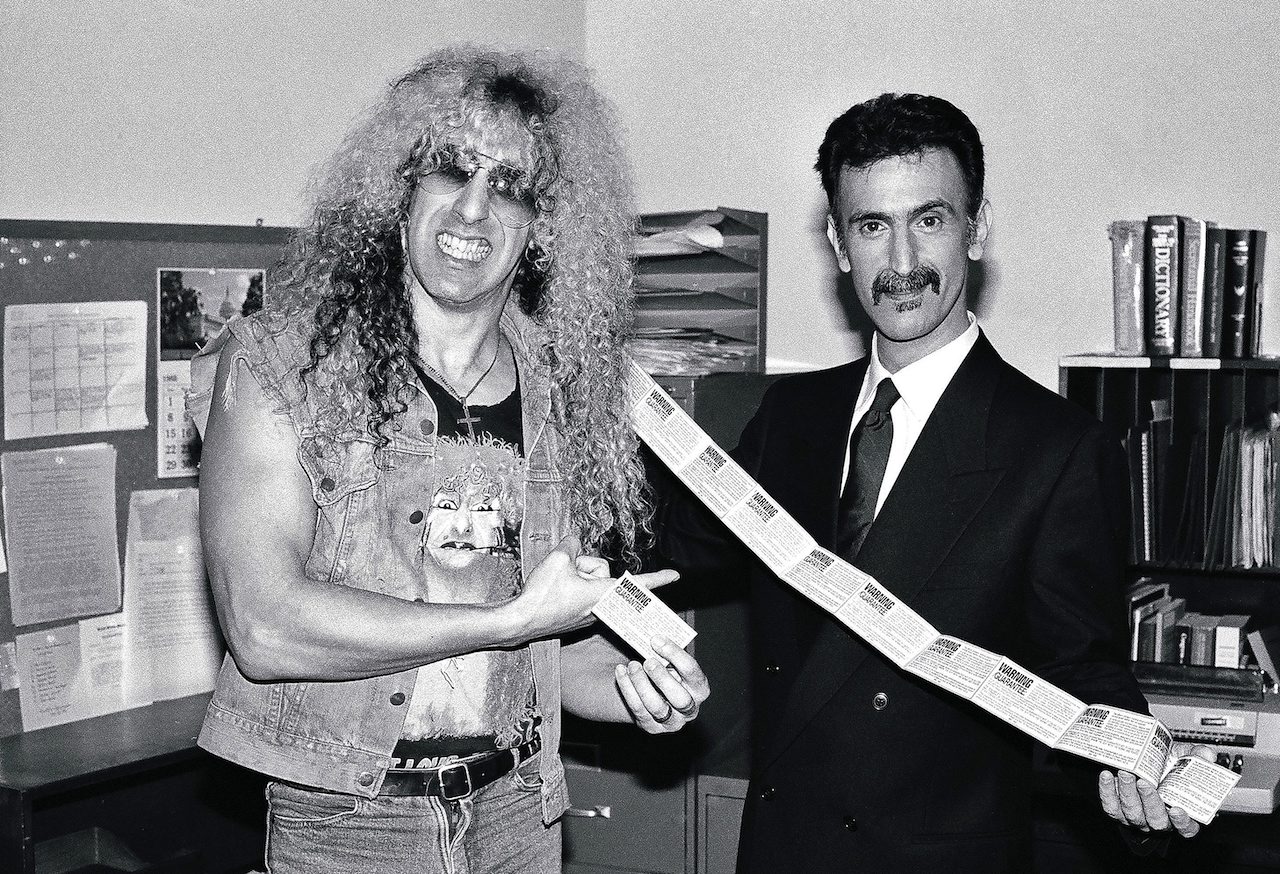
The PMRC disbanded in the late 90s, but their legacy can still be found plastered to the front of selected digital downloads, albums, and singles. They’d be disappointed to know their crusade didn’t deter people from listening to ‘Satanic’ music — the more people were told not to listen, the more they wanted to hear.
Venom singer Cronos was pleased with the sales boost their album got after being featured on the Filthy Fifteen list. In a 2015 interview with Rolling Stone, he said: “That album wasn't doing too well when it was first released, actually, but after their fantastic marketing scheme, it picked up and started selling very well, so thanks for that, PMRC. All they achieved was advertising hardcore underground music.”
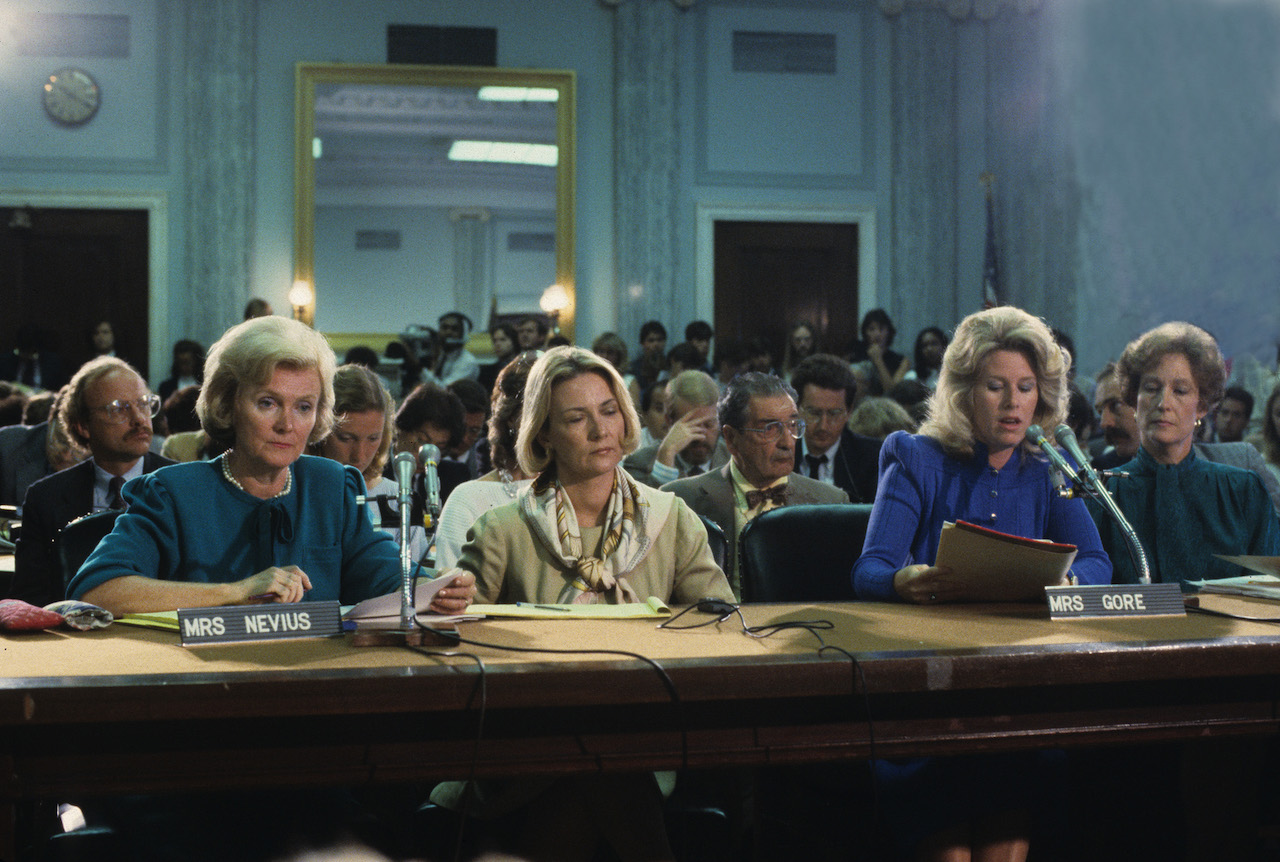
Satanism and the occult have been thematic mainstays in metal music ever since those early days. It’s become so commonplace that bands like Twin Temple, Watain, and Behemoth have openly Satanic members and often use ritualistic elements and symbolism as part of their live performance. “A lot of metal draws from the occult, from Satanism,” says Twin Temple singer Alexandra James. “It’s subversive, it’s in your face, it’s not for everyone, it champions the outsider, and that really goes back to its roots in rock’n’roll.”
After the 1985 PMRC Senate hearing, Snider told Newsweek he was concerned the Parental Advisory label would be used to “keep creative artists’ work from the general public”. Zappa predicted that record labels would start cancelling contracts and limiting distribution. Luckily for metal music, they were wrong — Satan still sells records.
